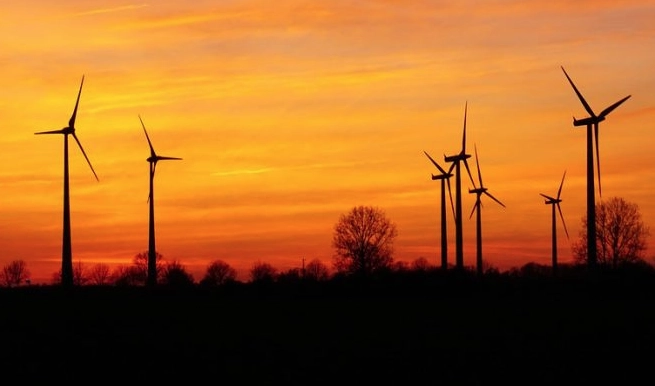Coauthor Francisco E. Castañeda
After the last meeting of the United Nations Climate Change Conference held in Glasgow at the end of October last year, one of the points that generated the most hope among developing countries was the commitment to comply with the 2015 Paris Agreement: to provide funds for climate change. External financing is a key aspect to ensure the energy transition in developing countries, so in Glasgow, leaders of developing countries pledged to unlock the funds once promised.
But the enthusiasm did not stop there; it spread to the private sector, where the largest contributions to the transition are expected to come from. Mark Carney, a pioneer in recognizing the climate problem when he chaired the Bank of England, co-founder with Michael Bloomberg of the Task Force on Climate-related Financial Disclosure (TCFD), and currently leads a consortium of 450 financial firms (Glasgow Financial Alliance for Net-Zero) highlighted the alignment of the financial sector to meet climate objectives. But, mainly, in pursuit of the goal of net-zero emissions by 2050.
In short, all promised long-term financing of funds to achieve the common good. However, the financial markets’ commitment to climate change may not last as long as expected. Recently, Blackboard CEO Larry Flink, one of the most powerful men in the financial world, declared that the war in Ukraine would mark the end of globalization. The outbreak of the pandemic sparked the debate on re-shoring, the trend towards the relocation of global value chains, something that has already been stimulated by the growing technological power of China.
The invasion of Ukraine has generated a disruption among Western leaders, and at a stroke, the naïve view that many had of Putin’s regime disappeared. Faced with the unpredictable military response, many decided to impose economic sanctions on Russia. But beyond the effects on the future of the conflict, the measures adopted may be marking the end of financial and commercial globalization.
However, the financial consequences may be greater, and undoubtedly will be. Paradoxically, the U.S. Treasury Department may be greatly affected if China decides not to continue buying massive amounts of Federal Reserve bonds. Beijing may also think of accelerating the process of internationalization of the Yuan, forcing its partners to abandon the dollar in their transactions, just as the now-sanctioned Russia demands of its hydrocarbon buyers.
The Russian invasion has forced the European Union to rethink its energy strategy, unequivocally marking an acceleration in the green transition. To face these costs, massive sources of new financing are required. But this process brings to our region dissimilar initiatives in this field. For most Latin American countries, the end of the current financial and trade globalization structure (as we have known it up to now) will end up slowing down the transition process. In addition, rising international inflation increases the cost of finance and will discourage long-term financing.
The war may not only imply an involution of the current financial and trade globalization, but will also affect the multilateral structures that have distributed power since the end of the Cold War. Reduced access to external financing will affect the energy transition, while the increase in the price of oil provides greater incentives for the exploration of this raw material.
But this not only implies less availability of funds for the transition, but also a redirection towards funds that seek short-term profitability. Instead of advancing with the transition, a barrel priced above 100 dollars will push for new oil bidding rounds. On the other hand, rising household energy bills will force countries in the region to increase energy subsidies, reacting with higher levels of public debt and turning fragile the already deteriorated public finances due to the pandemic.
Like other developing regions, Latin America’s “green hope” was associated with the arrival of capital inflows, and several leaders returned from Glasgow convinced of the power of the market to accelerate the transition. However, this optimism has been diluted by new global restrictions that foresee a slower global economy and higher costs for governments. There will therefore be less surplus to invest in this unavoidable energy transition.
Francisco E. Castañeda is an economist (Universidad de Chile), with a PhD at Loughborough University (UK) and MSc at the University of Birmingham (UK). His research interests cover the area of macro-finance and industrial policy. He is also a member of the Public Economics Scientific Committee of CIRIEC-Liege University.
Translated from Spanish by Janaína Ruviaro da Silva
Autor
Associate Researcher at the Center for the Study of State and Society - CEDES (Buenos Aires). Author of "Latin America Global Insertion, Energy Transition, and Sustainable Development", Cambridge University Press, 2020.












